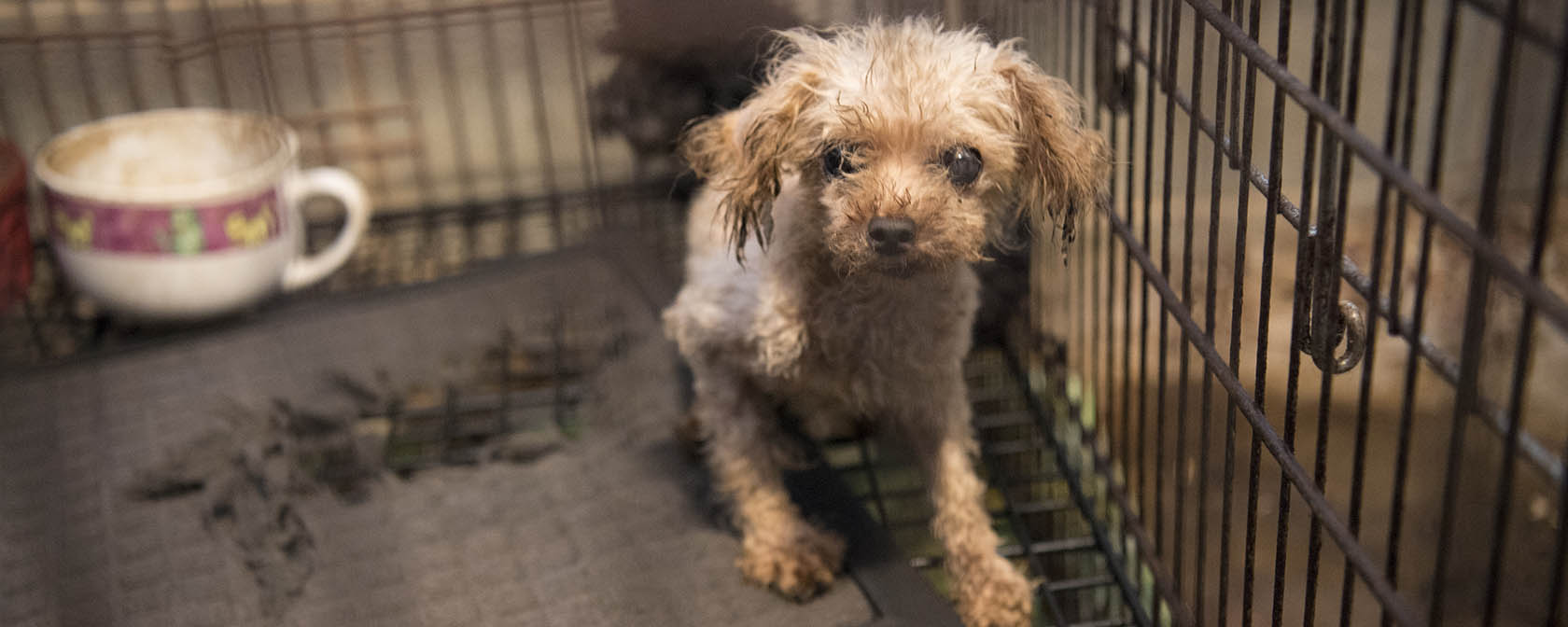By Sara Amundson and Kitty Block
In a long-awaited move, the U.S. Department of Agriculture today announced important reforms to tighten licensing requirements to prevent those who mistreat animals in their care from carrying on business as usual.
All dealers and exhibitors, including puppy breeders and roadside zoos will now need to apply for a new license every three years and pass a planned pre-license inspection to get one. This is a significant change from the past when the agency automatically renewed licenses annually, allowing even those who have severe and multiple Animal Welfare Act violations to continue operating. The rule also mandates that applicants must disclose any animal cruelty convictions before they can obtain a license.
The reforms announced today have the potential to improve tens of thousands of animal lives, and the Humane Society of the United States and the Humane Society Legislative Fund have advocated for them for many years now. The final rule issued today mirrors a few (but not all) of the improvements we requested in a 2015 petition to the agency to improve standards of care for dogs, and in legal comments we submitted in 2018 regarding the licensing scheme.
Here are some other reforms included in the rule:
- Enhanced veterinary care standards for animals held by puppy breeders, including annual hands-on veterinary exams and vaccinations for all dogs. The rule would require that all dogs have 24-hour access to fresh, clean water.
- Licensees will now have to apply for a new license and go through a new, pre-announced inspection if they make any noteworthy changes to the number or type of animals they have at their facility. This is an important change because the exhibitor may not have the resources or expertise to care for the new animals.
- A serious loophole in the regulations allowed individuals who were not bona fide exhibitors, but rather exotic pet owners, to get a USDA license to exhibit in order to circumvent state laws. The new rule would tighten licensing requirements and not give licenses to individuals who merely “intend to” become exhibitors, a step toward keeping exotic animals, including big cats, out of the hands of individuals.
These reforms are critical first steps toward much-needed regulatory change, but we would like to remind citizens and the USDA that they will be pointless if the agency fails to enforce them.
As we’ve been reporting on this blog, the USDA has, under the Trump administration, drastically scaled back on enforcing the Animal Welfare Act. Citations, warnings and fines have plummeted dramatically over the last three years and, in fact, the agency has not taken a single step to fine or revoke a puppy mill license since 2018, even when the mills have repeat, serious violations.
As HSUS revealed in their Horrible Hundred report yesterday, some pet dealers clean up their act every few years, just enough to pass one or two inspections so they can continue to get their licenses. Therefore, it is critical that the USDA bring to justice anyone who violates the law during the three-year licensing period.
To ensure that animals in puppy mills get all the protection they need, we will continue to fight for two important bills in Congress that go even further to protect dogs. One is the Welfare of Our Friends (WOOF) Act, H.R. 1002, led by Reps. Brian Fitzpatrick, R-Pa., Charlie Crist, D-Fla., Glenn Thompson, R-Pa., and Jim McGovern, D-Mass., which has huge bipartisan support in Congress with 216 cosponsors. The other is the Puppy Protection Act, H.R. 2442, which is led by Reps. Brian Fitzpatrick, R-Pa., Charlie Crist, D-Fla., Rep. Jim McGovern, D-Mass., and Guy Reschenthaler, R-Pa., and has 48 cosponsors.
“I applaud the USDA for finalizing an important rule to help protect dogs from abuse at the hands of irresponsible breeders,” said Fitzpatrick. “But there is much more we must do to ensure that this kind of abuse never happens again. This includes getting the WOOF! Act and the Puppy Protection Act signed into law.”
Both bills would reform the high-volume commercial dog dealer industry. They would include stronger provisions to prevent those whose licenses have been suspended or revoked from getting new licenses and provide more enhanced care requirements.
Passing these bills into law is crucial to ensure that dogs in this industry are adequately protected and we ask that you contact your lawmakers in Congress to ask for their support for the WOOF Act and the Puppy Protection Act. Let’s make sure that everyone is held accountable for animals in their care.
Kitty Block is President and CEO of the Humane Society of the United States




